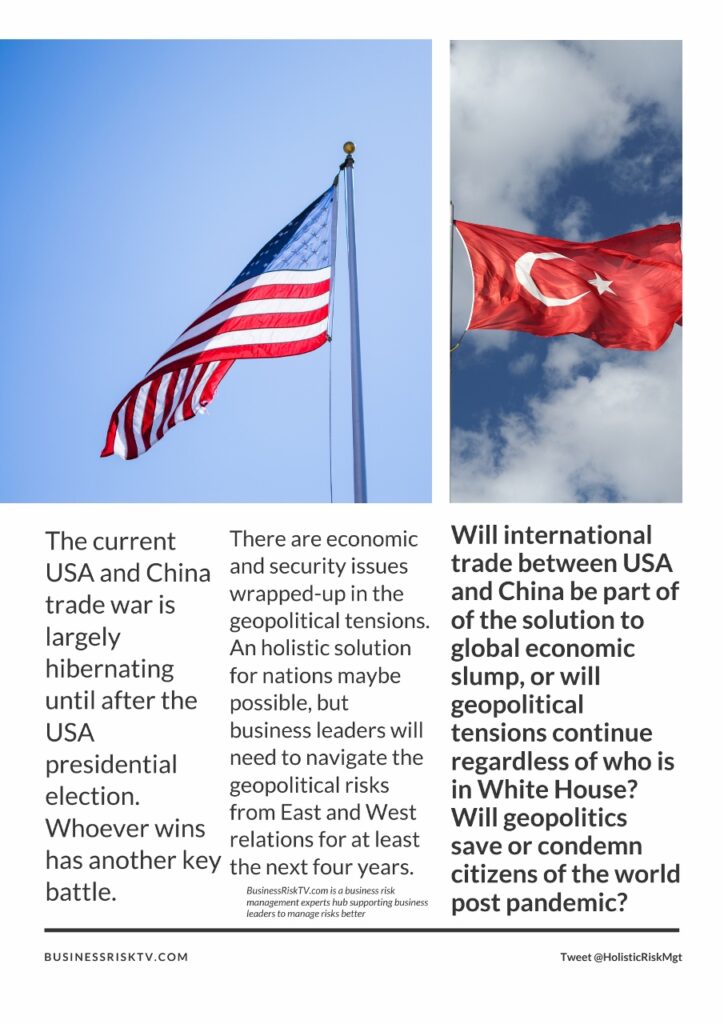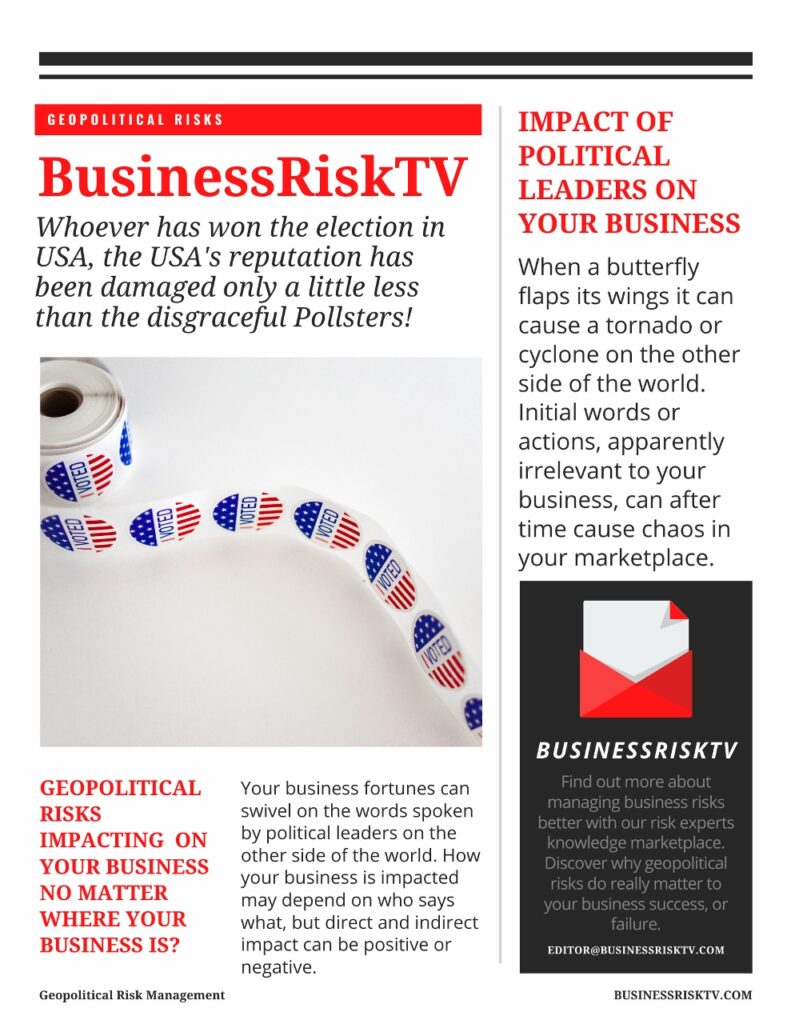Supply Chain Risk Management News Reviews Deals
Global Food Crisis Review
Globalisation Free International Trade Reshoring and Supply Chain Risk Management Articles and Risks Workshops
With GP video consultations you do not always need expert medical consultation from a GP in UK and the UK may not need as many doctors based in UK to provide GP services. The same could be said of many NHS services. The UK could save millions of pounds by sourcing supply of professional medical advice in Asia. Dito many other public and private services. Boeing aerospace plans to cut 20 percent of its worldwide workforce by the end of 2021 as airplane sales fall close to zero. UK car production in September 2020 fell to its lowest level in 25 years according to the Society of Motor Manufacturers and Traders (SMMT). UK and USA economy’s benefit hugely from aerospace and automotive manufacturing. Thousands of jobs at airplane and vehicle manufacturers, and many more in the supply chains, are at risk in short medium and long term.
Wherever you look in the world there are potentially new supply chain threats and opportunities. How do you manage supply chain risks better?
BusinessRiskTV
Uncertainty of international trade expanding or contracting impacting on your business objectives

America is looking at increasingly restrictive business trading rules which among other things will stop China investing and trading in USA. China may have its own agenda in Asia and beyond but it will at least respond defensively, and may become more offensive. Whether the geopolitical tensions between East and West are rising, business leaders need to react defensively and offensively to ensure their resilience and growth.

The global supply chain has broken during 2020 COVID-19 coronavirus pandemic. Supply chain risk management principles and practices have never been more important to ensure what you want you get, when you want it. There is an argument to dismantle global supply chains in favour local supply chains in a rapidly changing fracturing business world.
Our risk expert led webinars workshops and online discussions explore best practices in supply chain risk management for the benefit of C-suite leadership supply chain senior managers and executives, SME business owners and managers and risk management professionals. Our risk experts provide risk insight and the opportunity for you to explore new supply chain risk management ideas to protect and grow your business faster with less uncertainty. Identify and assess key risks. Share business intelligence and risk knowledge.
Global supply chains have been highly exposed by the rapid spread of COVID-19
This has led to business leaders questioning financial strategic operational and project risks from commonplace traditional supply chain management policies and systems. As countries turn inward to protect their own people and businesses, supply chains have been threatened. They currently remain resilient, but business leaders are now questioning the long lead times and threats to supply chains brought about by globalisation, and are asking themselves if national local supply chains need to be created at the expense of international supply chain trading.
Strategies to Protect Against Supply Chain Disruption include:
- Stockpiling to cope with supply chain disruptions for longer.
- Diversifying suppliers to favour many more local suppliers than acceptable to supply chain managers and executives in recent past. Perhaps blend long and short supply chains more resiliently.
- Development of backup suppliers should normal suppliers be hit by risk events, foreseen and unexpected.
- Managing demand for products better by looking more holistically at business development strategies and customer fulfillment. Some ordering does not always match demand for end products.
- Strengthening the relationship risk awareness and auditing of suppliers and their suppliers
Supply chain risk management is more than a function within your normal business operations. It is essential for a risk event which threatens the core business objectives of your business. Supply chain risk management is not only to protect against losses, or the size of losses that do occur. Supply chain risk management should support exploration of better ways of doing things in normal supply chain management.
A supply chain disruption is any sudden change or crisis—be it local or global—that negatively impacts that supply chain process. The fact that your supply chain is shorter and local does not make your business more secure or resilient. That may depend on your type of business and where you are based. Ultimately your business risk profile should dictate your supply chain risk management policy and strategy.
Demand uncertainty may hit not just your business but your whole industry
The risk event may make it difficult to know with any certainty the demand for your products. How do manage lack of orders, or perhaps an increase in orders swamping your business capability?
The COVID-19 pandemic is a classic example of demand uncertainty:
- Some businesses, and whole industries lost orders like the aerospace industry and this impacts on the management of the supply chains. Boeing aerospace has announced it plans to cut workforce by 20 percent by end 2021 as a result of lost production. This is likely to be nearing the end of the actual prevalence of the coronavirus in the world yet Boeing are anticipating long tail impact on demand which may in part include an irreversible change in how we do business and leisure.
- Some businesses, and whole industries were swamped by orders such as those in the medical or cleaning supplies sectors. The supply of specific materials often dried up due to global demand, leaving some businesses with massive new orders for end products they could not fulfill due to bottleneck of raw materials in short supply.
- Some businesses, and whole industries had the materials and could make the products, but lacked the consistent supply of one key asset – people. Workers with key skills may feel absolutely fine, but had to self isolate as they had some indication they had been in contact with an infected person. Their skills maybe absent from the production process for two weeks multiple times, if they are repeatedly unlucky enough to be in the wrong place at the wrong time. Whole factories were closed for short periods due to super virus spreading events.
It is highly likely that at the start of 2021 we will be experiencing the beginning of the end of the coronavirus pandemic. The USA may well have a new President with new approach to business and the global economy. The New Year 2021 may face new risks from the environment including fires and floods. Too much water in some places, with not enough water in other parts of the world can blowup existing military conflicts. Terrorism spiking in Europe at end of 2020 may just be the start of a second wave of the terrorism virus. As some leaders strive for 5G progress, others want to regress or at least not advance.
What new threats and opportunities are there to manage and harness for a better safer future?
BusinessRiskTV
Find out more about developing better supply chain risk management fit for the future
The world has and will ride the ups and downs of global risks. We cannot stop and eject from the roller coaster of life and business. Taking risks is often crucial for a better business or life. For some there will be opportunities to ride into a better future. For others, limiting the troughs maybe enough success to celebrate – survival maybe an achievement in itself.
In the short term businesses that support home nest building and entertainment prospered during coronavirus lockdowns around the world. In the medium to long term businesses must change. Going back to the old world post COVID-19 vaccines distribution is not going to work for the sustainably successful businesses of the future. How prepared is your business for the future of business risks?
Having shorter supply lines may help you build a more resilient business, but is not a given. Alternatively, opening new supply lines with countries unhindered by tariffs regulations and administration may help your business grow faster.
BusinessRiskTV
Parts of Asia outside of China and eastern European countries have benefited from globalisation as countries like the UK shipped out manufacturing and service industries including call centres, for example. It has created new jobs in underdeveloped parts of the world and these people become greater consumers themselves further increasing global growth. Globalisation is not all bad. The COVID-19 pandemic combined with technology advancements and more accepting customer may yet spur on a second wave of globalisation as business leaders look to the poorest parts of the world or most desperate to provide cheap labour instead of technological advancement.
National governments like America and economic blocks like the European Union EU may continue to restrict international trade via a combination of penalising import taxation tariffs. Some like America have encouraged reshoring via incentives and political threats from the highest office of state.
Economic consequences for nations, blocks of nations and businesses maybe both threatened and provide opportunities by political movement to defend what you have and grow. Who you work with may assist how you manage global economic and geopolitical risks, mitigating threats and seizing new business development opportunities. Our risk workshops seek to assist you via risk management skills development and networking with global business leaders.

IMPROVING SUPPLY CHAIN RISK MANAGEMENT FIT FOR FUTURE OF YOUR BUSINESS
Do you want to sponsor our workshops, or participate? Could you be a risk expert helping inform participants risk management decision-making? Do you want to participate in our online workshops. Our enterprise risk management toolbox talks are aimed at protecting your business better and rewarding your risk taking more with business expansion and development with less uncertainty.
Our online supply chain risk management workshop series analyses problems and explores solutions for supply chain management. We also scan the horizon to explore the future of supply chain risk management:
- Supply Chain Management Risks and Asia Pacific Region
- Supply Chain Management Risks and The Middle East
- Supply Chain Management Risks and Africa
- Supply Chain Management Risks and The Americas
- Supply Chain Management Risks and Europe
We undertake risk identification and assessment in each geographical area. Industries in focus within a geographical area will depend on who the participants are attending each supply chain risk identification and assessment workshop session.
Risk workshops and brainstorming exercises collect and share risk management ideas and discussions of the risk events that could impact on enterprise objectives, stakeholder expectations or key dependencies. We will disseminate key risk management findings including risk levels, best risk management practices and ways to expand your business with less uncertainty impacting on your business objectives and business key stakeholders. We will include external risk drivers including financial strategic operational and hazards of doing business in each area.
Is Globalisation A Good Or Bad Thing? Is Free International Trade Without Barriers The Same As Globalisation?
I have been opposed to globalisation for around a couple of decades. My gut instinct approximately 20 years ago when my mate told me he has helping his employer ship over plant and equipment to China to setup manufacturing there has I believe been proven right. As his company wound down and closed in Yorkshire in favour of Chinese factory output 20 years ago, I thought it was going to end in tears for the UK. My feelings were compounded when a couple of clients at the same time enlightened me. They were making more money 20 years ago from rounding up old industrial revolution plant and equipment from the textile industry in Yorkshire and wider UK, and selling it overseas in Asia largely, instead of doing what they had always done as a family business which was make money from maintaining such plant and equipment. We sold ourselves out in UK but who was at fault for that – our political leaders and the elite business leaders.
I have never been in favour of globalisation. For 20 years I think it has sold out the western blue-collar worker and middle class alike. I thought it would from get-go 20 years or so ago. It was an elitist project to make more money. It could have been a good project if the elites had invested their pots of cash, saved on labour costs, in new technology to protect our future and indeed the elites future. The elites could have created new plant and equipment and perhaps brought forward 4th Industrial Revolution earlier in the new millenium, creating new jobs that would have served western work forces, society and businesses as well. Instead they pocketed the cash for themselves and the top 5 percent become very rich.
However, like most things globalisation can produce good outcomes. In response to the COVID-19 coronavirus pandemic pharmaceutical companies GSK, Sanofi, AstraZeneca and Novavax have agreed to supply more than 200 million vaccinations to the Covax scheme, which is backed by the World Health Organization (WHO).
BusinessRiskTV
Globalisation promoted by the Tony Blair’s of this world was fundamentally flawed. He and others sold out the blue collar workers in UK and USA who he should ideologically have been protecting. The latest consequence was Brexit and the election of Trump.
Europe will only work well with ever closer union but that favours Germany not UK, which is now a service driven economy, largely made worse by Thatchers and Blairs of this world. The UK like USA has been stripped of much of its manufacturing asset base by globalisation principles.
Globalisation also, I believe contributed to and largely caused the last financial crisis in 2008. Then it was a financial services driven collapse brought about by lack of regulation and understanding of the risks. The global banking system very nearly collapsed due to unregulated control of financial instruments business leaders did not fully understand or care enough about. The lack of control enabled a relatively few number of people to set in motion the near collapse of global society, never mind the global banking system. People threw themselves to their deaths due to financial loss suffered. Most people managed to recover, but it probably took more than decade to recover. Many people in the likes of Greece and Italy did not recover. Many new people, young people failed to find a job all due to unrestricted under-regulated globalisation of financial system.
Increasing international trade is not the same as continuing, protecting or increasing globalisation
Increasing international free trade will raise the living standards of the world. Globalisation will not. Globalisation transfers suffering as well as wealth. International free trade raises total global wealth and distributes it in a way that will accelerate future sustainable global growth. Furthermore, free international trade inherently creates a natural fire break wall to help protect systemic global collapse due to poor risk management culture and practice that globalisation does not have inbuilt.
What we need is not globalisation but more genuine international free trade
Unfortunately international trade risk is driven by our political leaders not business leaders. Geopolitical risks impact on local business not just international trading.
The pandemic did not trigger the fall of globalisation. It was fundamentally flawed and the virus just stripped away the veneer of altruistic changes of manufacturing moving to Asia from UK and USA. The pandemic proved the principle that what is mine is mine and what is yours is mine too, when it came to cleaning products, medical equipment and the coming new vaccines. Just look how the European Union reacted to the pandemic spread when lives were really on the line. Individual countries scrambled to hog protection for their own citizens, not citizens of European Union.
You ship out manufacturing to other countries at your peril. National security does not just rely on bombs missiles aircraft carriers and bullets. It requires steel production, medical supplies manufacture and food production. Globalisation as promoted by the elite led to the elite making pots of money whilst exposing society to security risks and systemic collapse from a multitude of threats not all of which are obvious – unknown unknowns. However the threats from such Black Swans still need to be managed, but the damage from globalisation is not a Black Swan event. It stands to reason that if you allow the rape of your industrial output capability there will be exposed to increase threats as a nation. When the knowledge and tools to make stuff are no longer in the country, it is incredibly difficult expensive and perhaps impossible to resurrect.
Even Black Swan events create massive opportunities for business growth at the same time as systemic collapse. The COVID-19 pandemic is a very good example of this. Whilst aerospace manufacturing, or at least the sale of planes collapsed to almost zero, Amazon and online retail businesses in general jumped forward in leaps and bounds. Where there are losers there are usually winners too.
Supply chain risk management in future will require a complete restructuring for national security and corporate business resilience. As the threat from COVID-19 ebbs away in a year or two’s time, there will be other threats and opportunities to prepare for.
As Yazz would say, “The Only Way Is Up”!
Get a business mentor online to help you develop new supply chain and holistic business risk management strategy you can adopt to navigate the uncertainties of the world in business

| Marketplaces | Exhibitions |
| Cost Reductions | Risk Magazine |
#BusinessRiskTV #SupplyChainManagement #SupplyChainRiskManagement #SupplyChainRisks #SupplyChainRiskAssessmentCoach #BusinessMentor #GeopoliticalRiskManagement #GeopoliticalRisk #Geopolitics #SupplyChains #SupplyChainRisk #SupplyChainStrategy
Changing supply chain management to manage risk from changing world

Business risk management club